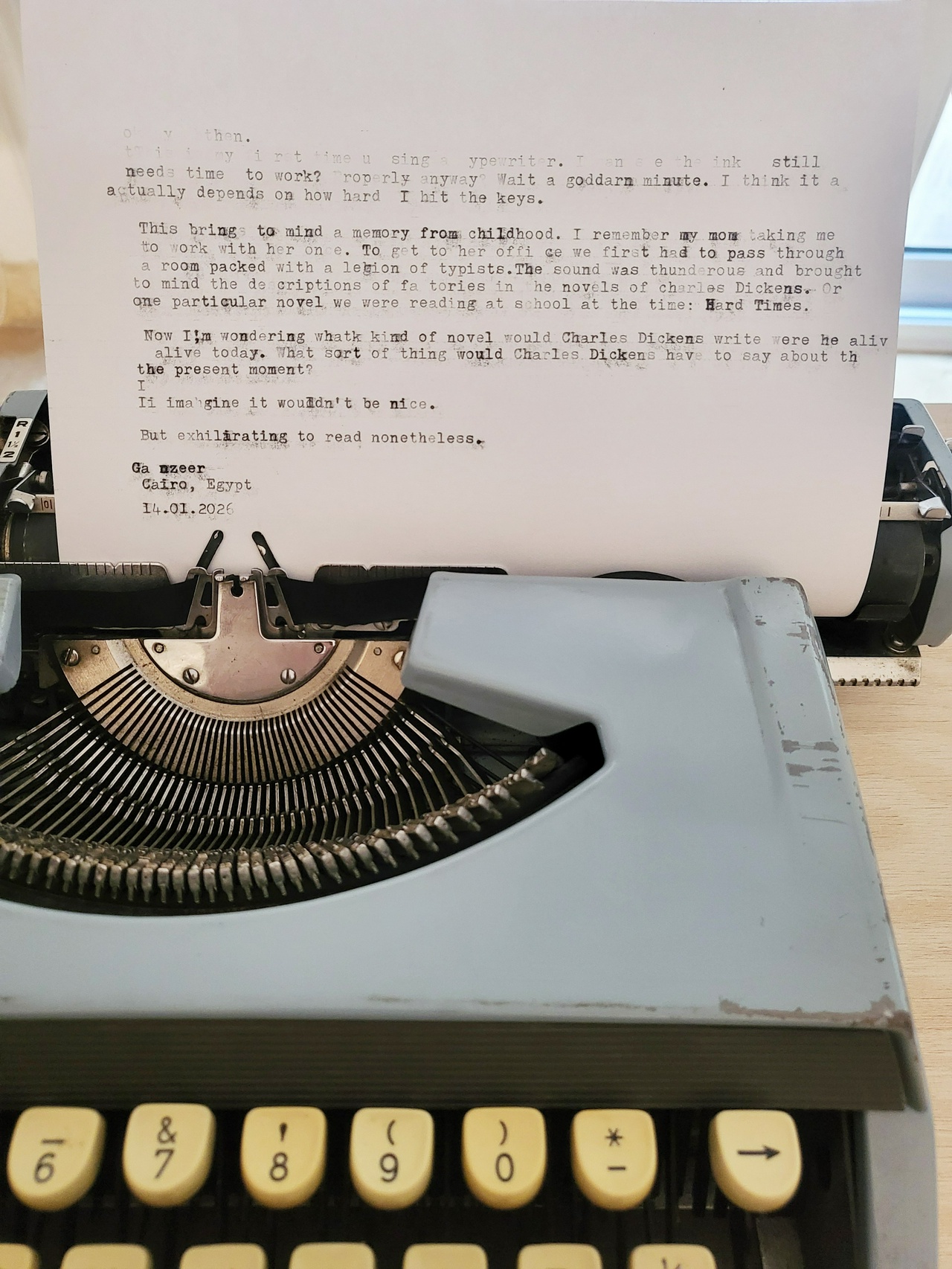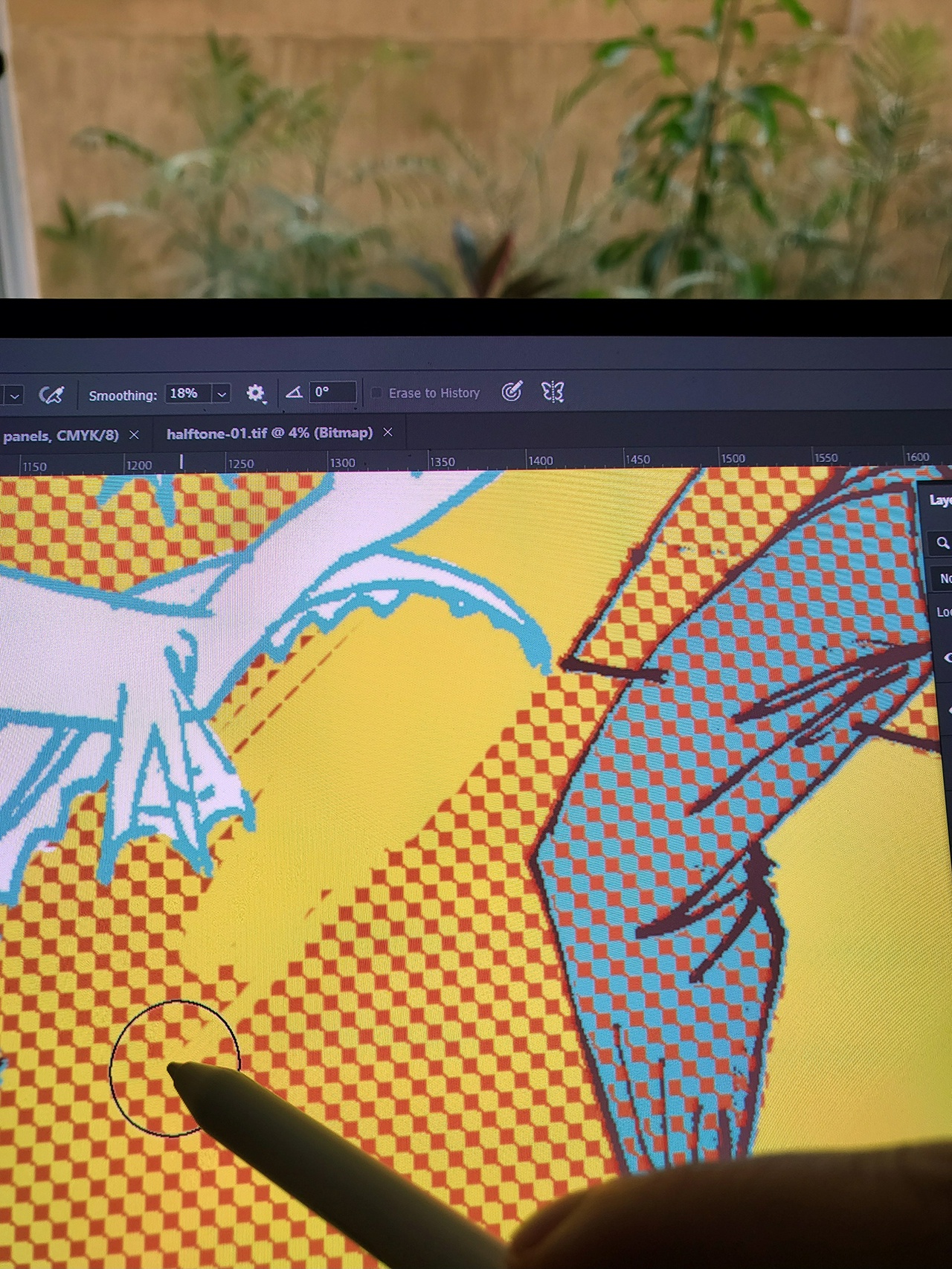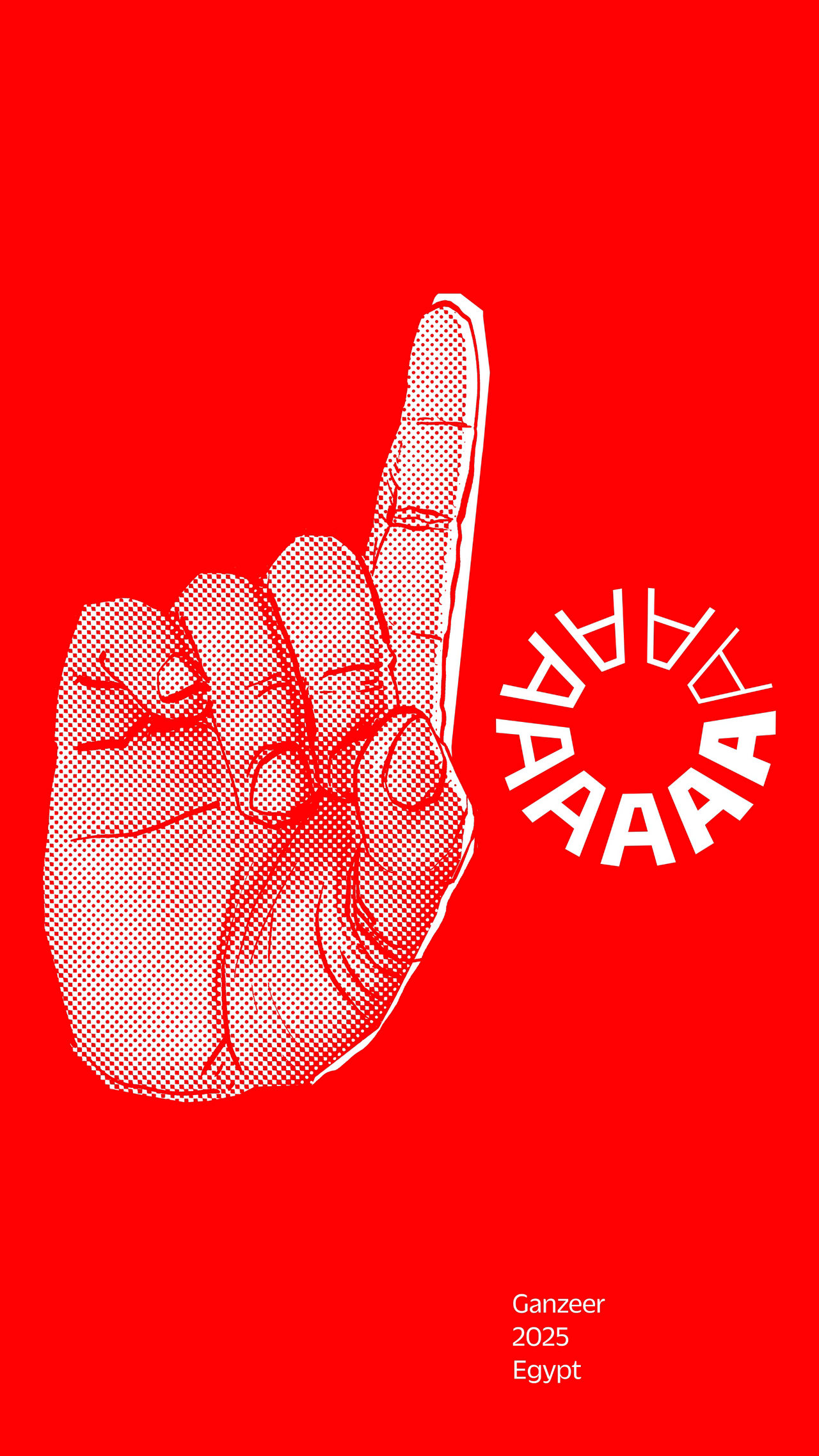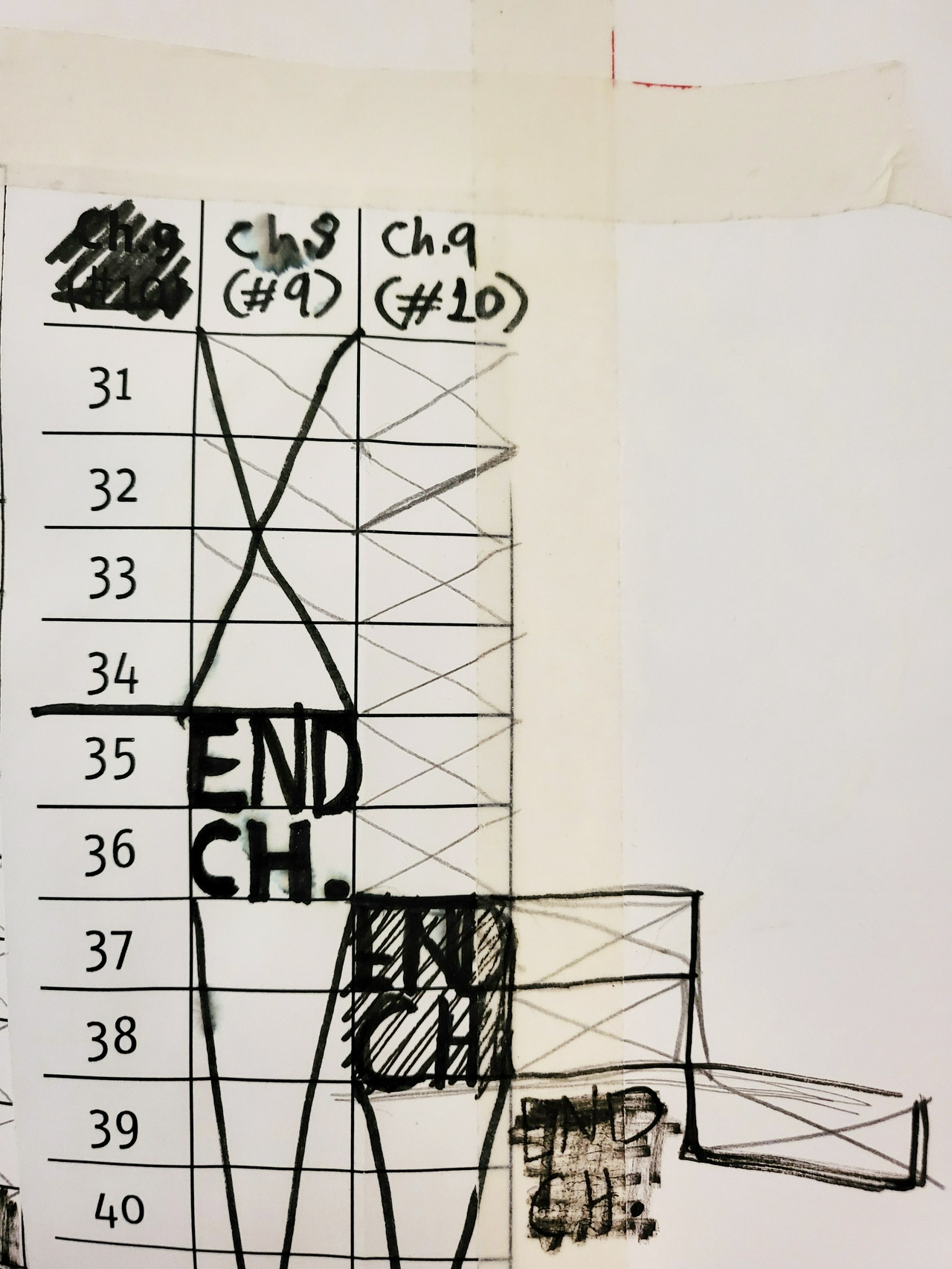Someone I don't know came up to me at the New Year's Eve party I attended and had very nice things to say about THE SOLAR GRID. Immensely flattering and humbling, but I was a little surprised and caught off guard, mainly because when anyone in Cairo approaches me with nice things to say about my work, it's usually about my street-art from many moons ago, or about one of my exhibitions, or occasionally about my graphic design work.
So this... this is quite new.
In other news, I've become one of those people who play ambient cafe chatter in the background instead of music.
#journal

Bathed her today and, surprisingly, she still doesn't hate me.
It's mating season for the cats these days and there are more cats than humans in Cairo, which is a city of over 20 million people, which makes cat-mating season kind of a warzone.
She may just be seeking refuge from all the horny bobcats out there, of which I can see four sniffing around the studio doors as I type.
In the process of recalibrating my daily routine; Bedtime reading just ain't for me, so instead I'm taking up reading first thing in morning. My place doesn't get any direct sunlight, which is a blessing in the hot summer months, but a frigid curse worthy of Norse gods in the winter. I may have to incorporate a daily noon-time stroll into my routine just to get some sun. I'm terrible at aimless walking though, and need to figure a destination into my plan to make it work.
In other news: I think I'm getting the hang of homemade egg pasta. No machines.

The plan to give up smoking will likely not come to pass, but I can at the very least attempt to heavily reduce it.
#journal

Got the typewriter to work!
Didn't realize the amount of muscle it would necessitate just to type a sentence. Wholly unpractical as a writing instrument, but I can see myself incorporating it into some mixed media art on paper, or into some of my mixed media pocket journaling.
In other news:
Finished the thank you portraits that go into the back end of THE SOLAR GRID collected edition, and received the foreword from someone very dear to me. Still waiting on the introduction and afterword, after which all the material for the book should more or less be complete.
Things fell apart with the publisher lined up for TIMES NEW HUMAN, so have to start reconsidering the best route to release it.
PROJECT ROSEWATER which started at the tail end of 2025 is trudging along but seems to have hit a rough patch.
GANZEER.COM updates still underway and are likely to carry on till the end of next week, by which point work on my kitchen just might also be complete.
There is talk of a project that involves some travel towards the end of February. We shall see.
#journal
It's been a while since I blogged. Fell out of the habit some time ago. Fell out of a few habits since my move back to Cairo actually and added a few frankly less than ideal ones: Much less reading, much less exercise, no use of the bicycle at all for commuting, and much more smoking. All things I've resolved to get a jump on altering in 2026.
I largely blame the transitional nature of settling back in, mostly hinged on all the work involved in making my place properly habitable, which is already coming up on close to a full year. I find it hard to settle into a good routine without a fully functional home, and you don't have a fully functional home if you have to live on takeout which is exactly what I've been doing for some 10 months.
Kind of surprised I managed to finish THE SOLAR GRID in the midst of it all. Now that it's complete with only publishing logistics to take on, I'm in a better position to get all the other life things in order.
I've already started cooking again, as well as reading. Now to get back into the habit of exercising. Other things on the docket is a big Ganzeer.com update, which is underway as we speak.
#journal

6 pages to color and 33 to letter.
Lettering moves pretty quickly, but digital coloring is slow and loathsome. So many hours sat in front of a computer screen which makes me feel like a zombie at the end of each day. Can't wait to be done with this part already.
Started reading Kazuo Ishiguro's NEVER LET ME GO sometime ago, which started interestingly enough but I largely lost interest by the last third of the book and now find myself winding most evening's down with a film instead. This however is also likely due to the above-mentioned zombie status induced by long hours at the computer desk.
Today's screening: LOST HIGHWAY
#journal #work #comix #TSG

Happy to see the fine folks at the Letterform Archive in San Francisco celebrate 10 years of typographic awesomeness. To celebrate, they asked a number of designers to contribute a “1” to use in conjunction with their circular AAAAAAAAA logomark to signify a “10”.
Figured I'd pitch in with the most intuitive “1” in human history, based on a photo of my own hand.
#work #journal

Issue #226 of the RESTRICTED FREQUENCY newsletter dropped a few days ago. In it we discuss 7 Rules for Artists.
Sign up lives here.
#rf

Inking is done.
Tones, touch-ups, and colors where they apply remain before moving onto lettering.
Lords help me.
#TSG #work #comix

9 pages worth of inks to go.
#TSG #Comix #Work







